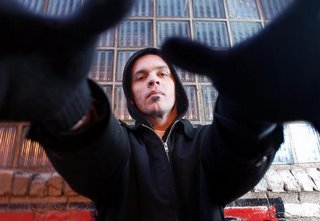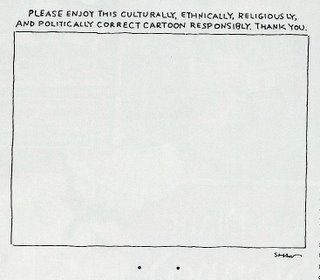When I was 14 I almost killed a best friend.
I met Amy* while buckling my tap shoes before dance class. She wasn't in my class, she was just a friend of the girl I stood next to in kickline, Carrie. They carpooled home, which meant Amy had to wait and watch our class so that she could hitch a ride home.
Amy and I didn't actually hit it off at first. Maybe it was the one-year age difference - I was in seventh grade, she was in sixth - or the fact that we attended rival middle schools. Either way, there was obvious awkward space when she, Carrie and I hung out. Carrie was our friend, though, so we sucked it up and stuck it out.
One day, as our teacher called out our names for attendance, Carrie scooted next to me, leaned low and whispered, "Can you keep a secret?"
"Sure," I mumbled, paying more attention to my stretches than our conversation.
"I mean, you can't ever tell anybody."
"Okay, I promise."
"Promise?"
"Promise."
"Amy's a lesbian, and she has a crush on you."
Stretching was now secondary to the conversation. I wasn't sure how to react, though. My hometown isn't void of diversity, but this was definitely unfamiliar ground. So I responded with what any middle schooler in the late 90s would say:
"What-ever, Carrie." And I went and linked arms with the rest of the kickline.
My dad always taught me that "a promise is a promise." In other words, when you make a promise, you damn well better keep it. I guess I thought these were extenuating circumstances. Confused about what I was told, I called my best friend and, ironically, made her promise not to repeat the story.
Naturally, everyone at my school and Amy's had heard about "the lesbian" by 2:52 p.m. the next day.
The next week at kickline practice, that awkward tension between us was palpable. And it remained that way for a long time. But somewhere along the way - via phone calls and notes - Amy and I became friends. Good friends, actually. We signed up for the same summer basketball program at our future high school, and often hung out before or after practice. We both signed on to the newest technology craze - AOL Instant Messenger - and had great conversations over the Internet. Despite the past, she'd become one of my closest friends.
One evening, after getting home from a night out with my friends, I signed on AOL to check my email and read others' away messages. It was midnight (which is fairly late in pre-teen terms), so I was pleasantly surprised when a message window popped up from Amy.
The chat started out standard and lighthearted, but it soon morphed into a serious and scary conversation. Amy started telling that she was unhappy and depressed, that she had been thinking about killing herself. Again, I found myself on unfamiliar ground. So I asked a dumb, inappropriate, irrelevant question.
"How long have you been feeling like this?" I typed.
Months, she told me. Since I had told my best friend about what Carrie told me in dance class. Since I'd basically outted her.
"I almost did it today," she wrote.
Time for another dumb, inappropriate, irrelevant question. "What stopped you?" I wanted her to say that she changed her mind or something. Instead:
"My mom and dad came home."
The conversation kept going like this for a while. I don't remember all that was said, but I know I wanted to keep her talking, as if that was the only thing keeping her from swallowing a bunch of pills right then and there. And then this popped up:
"I WANT TO DIE."
I woke up my mom, and while she called a suicide hotline, I called Amy. I have no idea what we talked about or for how long. I do know that my heart was in my throat, my body was trembling and I'd broken out into a cold sweat. I'm pretty sure my mom found me sobbing on our basement couch after we got both got off the phone. The next day, my mom and I told her dad about the conversation.
About a week later, I got a call from Amy. She was in the hospital getting help and treatment for depression. My contact with her since then has been minimal (I think she was mad that I told her parents), but as far as I know, she's alive and well. Any friendship lost is rough - but as far as I'm concerned, a dead friendship is better than a dead friend.
Why did share this story? For a lot of reasons, really. Because I haven't told it since my senior year of high school. Because no one at Mizzou has heard it, including my roommates and our dog. Because I know six people that killed themselves during my freshman and sophomore years of high school, and I take depression and suicide seriously. And because - I'm not sure why - lately I've simply felt like telling it.
Besides, I think the act of telling that tale applies to what we're talking about in class today: voice. I've only written it twice before: once for a journalism class assignment sophomore year of high school and once for a senior English paper. Each time I tell this story, my voice comes through, well, loudly. And consistently.
I think a writer's voice is most apparent in stories that touch the author - not the reader - emotionally. Voice is best when you are writing for you.
Cheers.
*all names have been changed
 An assortment of reasons why I don't think Slug of Atmosphere is ugly:
An assortment of reasons why I don't think Slug of Atmosphere is ugly:

